Find Help
More Items From Ergsy search
-

Dr Hilary Jones on Residential Care PART 2.
Relevance: 100%
-

Dr Hilary Jones on Residential Care PART 1.
Relevance: 99%
-
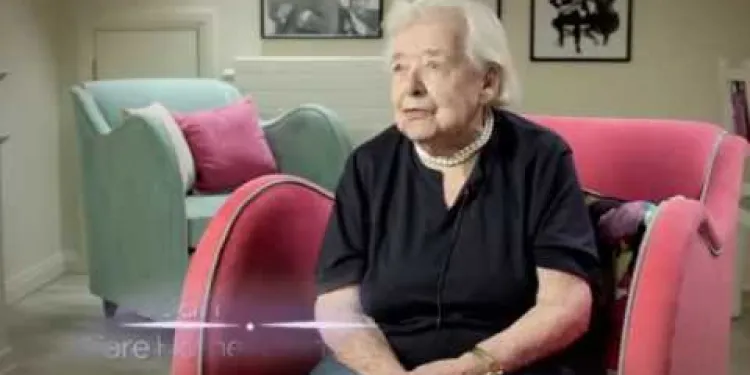
The role of residential & nursing homes
Relevance: 79%
-
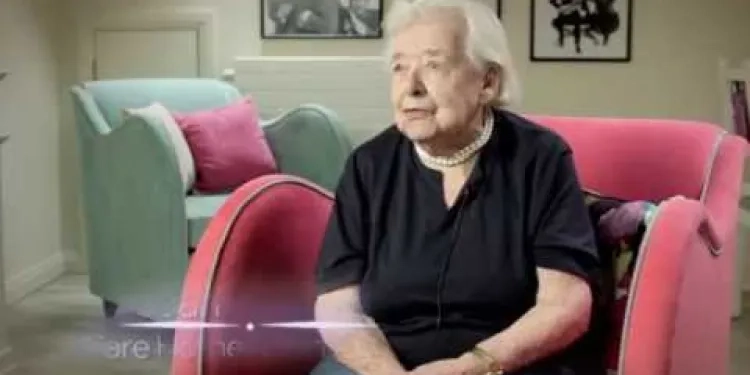
The role of residential and nursing homes
Relevance: 78%
-

Do care homes provide medical care?
Relevance: 64%
-

Are there different types of care homes?
Relevance: 60%
-

What are Care Homes?
Relevance: 56%
-

Remortgage within 6 Months on the open market value Residential or Buy to Let Properties
Relevance: 51%
-

What respite care options are available for carers?
Relevance: 47%
-

Should you Pay down your Residential Mortgage?
Relevance: 46%
-

Dementia Care at Colten Care
Relevance: 46%
-
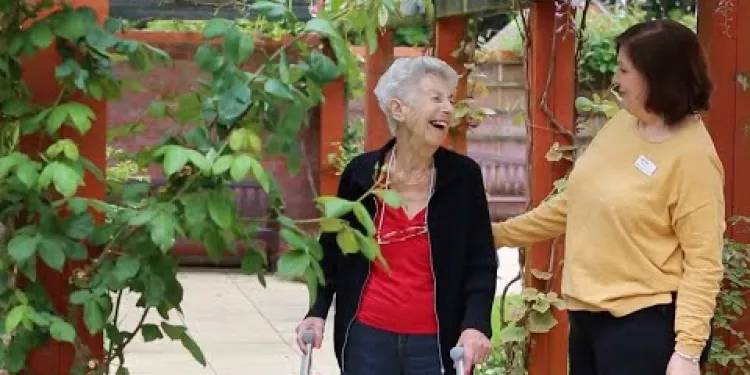
Amberwood House (Colten Care)
Relevance: 46%
-

What is the role of Live In Care?
Relevance: 45%
-

Who benefits from live-in care?
Relevance: 45%
-
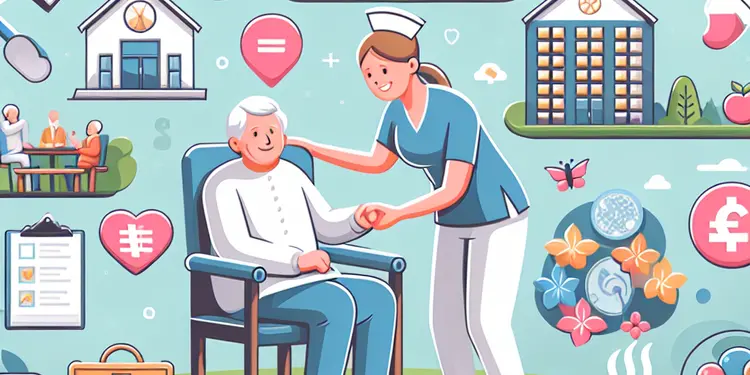
What services do care homes provide?
Relevance: 44%
-

Dr Hilary Jones shares his professional and personal thoughts on Colten Care
Relevance: 44%
-

Can couples live together in a care home?
Relevance: 42%
-

How can I plan for future care needs?
Relevance: 42%
-

Is live-in care available for short-term needs?
Relevance: 41%
-

How can seniors access long-term care support?
Relevance: 41%
-

Who can live in a care home?
Relevance: 40%
-

Can live-in care support individuals with dementia?
Relevance: 39%
-

How is the quality of care regulated in care homes?
Relevance: 39%
-

How can I choose the right care home?
Relevance: 39%
-
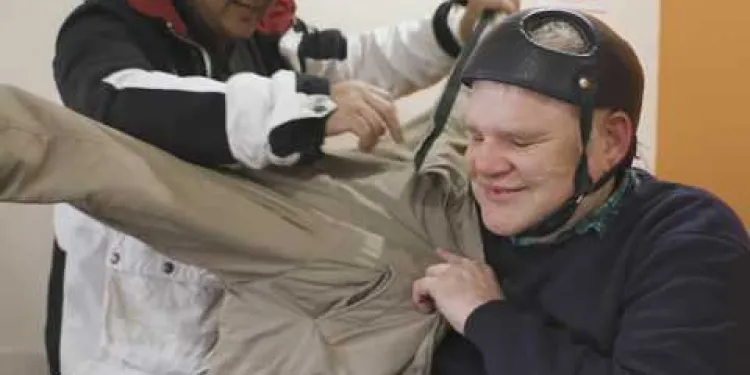
Transforming Care for people with Learning Disabilities and/ or Autism: Peter's Story
Relevance: 37%
-

Child Care Proceedings | Family Law
Relevance: 36%
-

Chiropractic Care on the NHS
Relevance: 36%
-

Stoma Care
Relevance: 35%
-

Neck Care Exercises
Relevance: 35%
-

What is end of life care?
Relevance: 35%
-

Can live-in care be customized?
Relevance: 35%
-

The role of care homes dedicated to caring for people living with dementia and memory loss
Relevance: 34%
-

How can primary care support workers contribute to patient care improvement?
Relevance: 34%
-

What is the cost of living in a care home?
Relevance: 33%
-

Birchgrove - Assisted-living accommodation and care
Relevance: 33%
-

Is live-in care an alternative to nursing homes?
Relevance: 33%
-

Are there opportunities for specialization in primary care support?
Relevance: 33%
-

Are dietary needs accommodated in care homes?
Relevance: 33%
-
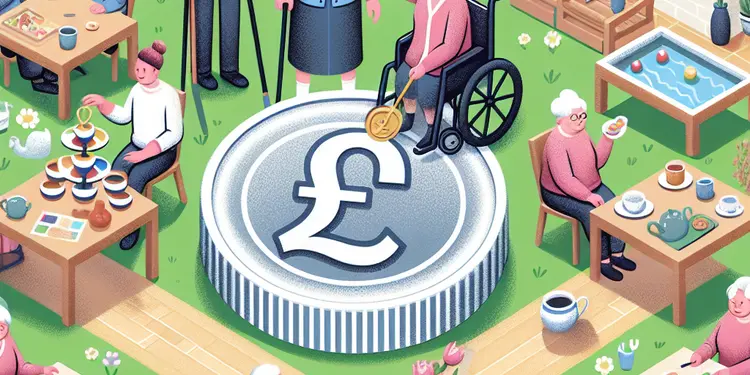
Are activities provided for residents in care homes?
Relevance: 33%
-

How is the quality of live-in care monitored?
Relevance: 33%
Dr Hilary Jones on Residential Care Part 2
Dr Hilary Jones, an esteemed medical professional and a familiar face on British television, continues to address critical issues surrounding residential care in the UK. In the second part of his insightful discussion, Dr Jones delves deeper into the multifaceted aspects of residential care, focusing on quality of life, care standards, and the pivotal role of community support.
Ensuring Quality of Life in Residential Care
Dr Jones emphasizes that maintaining a high quality of life for residents is paramount in any care facility. He notes that while physical health care is essential, emotional and social well-being must not be overlooked. Activities that stimulate cognitive abilities and promote social interaction are crucial. He suggests the integration of personalised care plans that respect residents' preferences and dignity. Regular assessments and feedback can help tailor services to meet individual needs, thereby improving overall satisfaction and well-being.
Importance of Care Standards and Regulations
In his discourse, Dr Jones highlights the significance of stringent care standards and regulations. He discusses the role of organisations like the Care Quality Commission (CQC) in ensuring facilities meet necessary benchmarks. These regulations are in place to protect residents from inadequate care and to uphold high standards. Dr Jones urges families to thoroughly research and visit potential care homes, paying close attention to inspection reports and feedback from current residents and their families.
The Role of Community Support
Dr Jones underscores the vital role of community support in enhancing the residential care experience. Community engagement initiatives can enrich the lives of care home residents, providing them with a sense of belonging and connection to the outside world. Volunteers, local businesses, and schools can contribute through visits, collaborative events, and intergenerational projects. Such interactions not only benefit residents but also foster a compassionate and inclusive community atmosphere.
In conclusion, Dr Hilary Jones advocates for continuous improvement and innovation within the residential care sector. By focusing on quality of life, rigorous care standards, and community involvement, the UK can ensure that its elderly population receives the respectful and compassionate care they deserve.
Dr Hilary Jones on Residential Care: Part 2
The Importance of Quality Care
Dr Hilary Jones emphasizes the critical role quality care plays in residential care facilities across the United Kingdom. Residents deserve to live in a setting where their health, well-being, and dignity are prioritized. Effective residential care goes beyond meeting basic needs; it involves creating a nurturing environment where individuals feel respected and valued. This includes personalized attention from well-trained staff, ensuring both physical and emotional needs are met.
Choosing the Right Facility
For families considering residential care, Dr Hilary highlights the importance of thoroughly researching options. Factors such as location, staff-to-resident ratio, available medical care, and the overall ethos of the facility should be considered. Visiting potential care homes and speaking with both staff and current residents can provide invaluable insights. It is essential to choose a facility where the residents' quality of life will be enhanced, and they will have opportunities for social interaction and stimulation.
The Role of Healthcare Professionals
According to Dr Hilary, healthcare professionals have a pivotal role in the landscape of residential care. Their expertise is essential for creating comprehensive care plans tailored to individuals' unique needs. Regular health assessments and adjustments to care plans ensure that residents receive the right level of medical attention, managing chronic conditions effectively, and promoting overall well-being. Collaboration between doctors, nurses, and carers leads to the best outcomes for residents.
Future Challenges and Innovations
Dr Hilary discusses future challenges facing residential care in the UK, including an aging population and the need for facilities to innovate to meet these demands. Technology can play a significant role in improving care quality, from telemedicine services that enhance healthcare access to advanced monitoring systems that keep residents safer. Adoption of such technological advancements can transform residential care, making it more efficient while ensuring high standards of care.
Conclusion
Residential care in the UK is a dynamic field requiring continual adaptation and improvement. With advocates like Dr Hilary Jones highlighting the importance of quality care, and the integration of advanced healthcare practices, residents in care facilities can enjoy better living conditions. This discussion underlines the value of informed choices and the critical role of all stakeholders in enhancing the residential care experience.
Dr Hilary Jones Talks About Care Homes Part 2
Dr Hilary Jones, a well-known doctor on TV, talks about important things about care homes in the UK. In this second part, Dr Jones talks more about living in care homes. He talks about how to make life better, keeping high standards of care, and how the community can help.
Making Life Better in Care Homes
Dr Jones says it is very important for people in care homes to have a good life. He says that taking care of the body is important, but so is taking care of feelings and friendships. Doing fun activities that help the brain and let people talk to each other is key. Dr Jones talks about making special plans for each person that respect what they like and who they are. Checking these plans often can make sure everyone is happy and feels good.
Why Care Standards are Important
Dr Jones talks about having good rules for care homes. He talks about groups like the Care Quality Commission (CQC) that make sure care homes do a good job. These rules help keep people safe and make sure they get good care. Dr Jones tells families to find out a lot about care homes before choosing one. Visiting the homes and reading reports and talking to people living there can help.
How Communities Can Help
Dr Jones says the community helps a lot to make life in care homes better. When people from outside visit and do activities with the residents, it makes them feel included and happy. Volunteers, local businesses, and schools can visit, do events, and work on projects with the residents. This is good for everyone and helps build a caring and friendly community.
Finally, Dr Hilary Jones wants us to keep making care homes better. By thinking about making life good, having good rules, and getting the community involved, care homes in the UK can give old people the love and care they need.
Dr Hilary Jones on Residential Care: Part 2
Why Quality Care is Important
Dr Hilary Jones talks about why good care is so important in homes where people live and get help in the UK. People living in these places should be treated with care and respect. Good homes make sure people feel happy and safe. This includes having caring staff who are trained to help with both health and feelings.
Picking the Best Place
If your family is thinking about a care home, Dr Hilary says it's important to look at all your options. Think about where it is, how many staff are there for each resident, the medical help available, and how the home feels overall. Visit the places and talk to staff and people living there to learn more. Pick a home where people can make friends and do fun things.
The Work of Healthcare Workers
Dr Hilary says healthcare workers are very important in care homes. Their knowledge helps make the best plans for each person’s care. Regular health checks make sure everyone gets the right help, especially if they have ongoing health needs. When doctors, nurses, and carers work together, it helps residents feel their best.
Challenges and New Ideas for the Future
Dr Hilary talks about future problems that care homes may face, like more older people needing care. Homes need to come up with new ways to help, like using technology. Things like online doctor visits and new safety gadgets can make care better. These new tools can make care more effective and safe.
The Ending
Care homes in the UK are always changing and getting better. With people like Dr Hilary Jones pointing out the need for good care, and with new healthcare ideas, people in these homes can live well. It’s important to make smart choices and for everyone involved to work together to make care homes great places to live.
Frequently Asked Questions
What is residential care?
Residential care refers to long-term care provided in a residential setting rather than the person's home. It’s designed for individuals who need extra support with daily activities such as bathing, dressing, and taking medication.
Who can benefit from residential care?
Residential care is suitable for older adults who need more help with daily living than can be provided at home, those with complex medical needs, or people with dementia who require regular supervision.
How is residential care funded in the UK?
Funding for residential care in the UK can come from different sources: local authority funding, self-funding, or a combination of both. The financial assessment determines eligibility for any local authority contribution.
What services are typically included in residential care?
Residential care typically includes accommodation, meals, assistance with personal care, social activities, and 24-hour support. Some facilities also offer medical care and therapies.
How do I choose a residential care home?
When choosing a care home, consider the facility’s location, services offered, staff qualifications, Care Quality Commission (CQC) rating, and get feedback from current residents and their families.
What is the role of the Care Quality Commission in residential care?
The Care Quality Commission (CQC) regulates, inspects, and reviews all care services in England, ensuring they meet national standards of quality and safety. They provide ratings and detailed reports on care homes.
Can residents receive visits from family members?
Yes, most residential care homes encourage family visits. They typically have visiting hours, but arrangements can be made for relatives to visit outside these times in special circumstances.
Are residential care homes equipped to manage medical emergencies?
Most residential care homes have trained staff and protocols in place to handle medical emergencies. They usually have direct links to local healthcare services for immediate assistance.
Can residents personalize their living space in a care home?
Typically, residents are encouraged to personalize their rooms with personal belongings, such as photos and furniture, to make it feel more like home.
Do residential care homes cater to special dietary requirements?
Yes, most care homes cater to various dietary needs and preferences. Staff typically work with residents and family members to ensure dietary requirements are met.
What activities are available for residents?
Residential care homes often provide a variety of activities to support physical, mental, and emotional well-being. These can include exercise classes, arts and crafts, music therapy, and outings.
Are there different types of residential care homes?
Yes, there are different types of residential care homes, including care homes for older adults, nursing homes for those needing regular medical care, and specialist dementia care homes.
What should I do if I have concerns about the quality of care?
If you have concerns, initially discuss them with the care home manager. If issues remain unresolved, you can contact the Care Quality Commission or local authority to file a formal complaint.
Do residents have a say in their care plan?
Yes, residents are involved in creating and reviewing their care plans to ensure their needs, preferences, and personal goals are respected and considered.
How can I plan financially for residential care?
It is important to seek financial advice to plan for residential care. Consider talking to a financial adviser to understand the options available for funding care, including local authority support, selling assets, or insurance products.
What is residential care?
Residential care is a place where people live and get help. People who live there might be old or need special care. It is like a big house with helpers.
Helpers give food, clean the rooms, and help with washing and dressing. People can have their own room or share with others.
To understand better, you can:
- Look at pictures of care homes.
- Ask someone to explain what happens there.
- Visit a care home to see what it is like.
Residential care is when people live in a special home to get help for a long time. This help is for things like taking baths, getting dressed, and taking medicine because they can't do these things by themselves.
Who can get help from living in a care home?
Some people need extra help to live their daily lives. A care home can help. Here are some people who might need a care home:
- Older people who need help with washing, dressing, or eating.
- People who are sick and need special care all the time.
- People with disabilities who need help with everyday activities.
If you or someone you know needs this kind of help, a care home might be a good choice.
Here are some ways to get more information:
- Talk to a doctor or nurse.
- Ask family or friends for advice.
- Look for information online from helpful websites.
Residential care homes are good for older people. These are people who need extra help every day. They might need this help because they have health problems, or they have trouble remembering things and need someone to watch over them.
If you find reading hard, try using a ruler or your finger to follow along the words. Listening to audiobooks can help too.
Who Pays for Care Homes in the UK?
Care homes are places where people live and get help if they can't take care of themselves.
Paying for care homes can be done in different ways:
- Your Own Money: Some people use their own money to pay for care homes.
- Government Help: The government can help pay if you don't have enough money.
You can use tools like:
a calculator to see how much money you have.
ask someone you trust for help, like a family member or a social worker.
Money to pay for care homes in the UK can come from different places. It might be from the local council, from the person themselves, or both. The council looks at your money to see if they can help pay.
If you find reading difficult, you can use tools like text-to-speech apps that read aloud for you. You can also ask someone to help you understand.
What help do people get in residential care homes?
Here is a list of what help people usually get in residential care homes:
- Help with daily activities: This means getting help with things like dressing, bathing, and eating.
- Meals: People get food that is cooked for them every day.
- Cleaning: The staff keeps the rooms and living areas clean.
- Healthcare: Nurses and doctors check on people to make sure they are healthy.
- Fun activities: There are games and events to enjoy.
- Safety: The staff make sure everyone is safe and looked after.
Family and friends can also visit and spend time with their loved ones.
Residential care is a place where people can live and be looked after. It includes a place to sleep, meals to eat, help with washing and dressing, fun activities with others, and someone to help at any time of day or night. Some places also have doctors and special treatments to help you feel better.
How do I pick a home to live in for care?
Choosing a care home can be a big decision. Here are some steps to help you:
- Visit different homes: Go see a few care homes with a family member or friend.
- Talk to people: Ask the people who live there and the carers what they think.
- Check things: Look at the rooms, food, and activities. Are they clean and nice?
- Ask questions: Ask about the cost and what help you will get.
- Use tools: You can use pictures or stories to help you make a choice.
- Trust your feelings: Choose the place that feels right for you.
When picking a care home, think about where it is, what services they have, how skilled the staff are, and their rating from the Care Quality Commission (CQC). It's also a good idea to talk to people who live there now and their families to hear what they think.
What Does the Care Quality Commission Do in Care Homes?
The Care Quality Commission, or CQC, checks care homes to make sure they are good and safe.
Their job is to look at how people are cared for and make sure staff are nice and helpful.
The CQC also makes sure care homes are clean and have everything they need.
If a care home is not good, the CQC tells them what to fix and checks again later.
Here are some tools to help understand better:
- Ask someone to explain to you if you don't understand.
- Look at pictures or videos about care homes.
- Use a dictionary to learn new words.
The Care Quality Commission (CQC) looks at care services in England to make sure they are safe and good for people. They check care homes and give them a score, like in school. They also write reports to say how good the care home is.
Can people who live here have family come to visit?
Yes, most care homes want family to visit. They usually have visiting times. But family can sometimes visit at other times if there is a special reason.
Can care homes help in a medical emergency?
People live in care homes when they need help every day. But it is important to know if they can help in an emergency.
Care homes usually have staff to look after people, but not all can handle big medical problems. They often call for an ambulance or a doctor if someone is very sick.
If you're worried, ask the care home about their plans for emergencies. Knowing what they can do might help you feel better.
It can also be helpful to keep a list of emergency numbers, like 911 or 999, and to make sure the staff know about any special health needs you might have.
Most care homes for people to live in have trained staff. They know what to do in a medical emergency. Care homes often have ways to get help quickly from local doctors or hospitals.
Can people make their rooms special in a care home?
Living in a care home can be more fun if you can make your room feel like yours. Here are some ways to do it:
- Bring your favorite things from home, like pictures or blankets.
- Ask if you can rearrange the furniture to make it cozy.
- Choose your own bedding and decorations.
If you need help, you can:
- Talk to the care home staff. They are there to help you.
- Use pictures or drawings to show how you want your room to look.
Making your space feel like home can make you happier!
People living here can make their rooms feel cozy and like home. They can bring things like pictures and their own furniture.
Do care homes have special food options?
Do you wonder if care homes can make special meals?
Yes, care homes can make special meals for people who need them.
If you have special food needs, tell the care home staff.
They can help with things like allergies or vegetarian meals.
Tools like picture cards or simple menus can make choosing food easier.
Yes, most care homes can make different kinds of food for people. The staff talk to the people living there and their families to make sure everyone gets the right food.
What fun things can people who live here do?
Care homes are places where people live and get help. They have fun things to do to help you feel good in your body and mind. You can do things like exercise, make arts and crafts, listen to music, and go on trips.
Are there different kinds of homes for people who need care?
Yes, there are different kinds of places where people can live and get help. Some are for older people. Some are for people who need a lot of medical help. Others are for people with dementia.
What should I do if I am worried about the care someone is getting?
If you are worried, talk to the boss of the care home first. If things don't get better, you can tell the Care Quality Commission or your local council to make a formal complaint.
Can people help decide their care plan?
Yes, people living there help make and check their care plans. This makes sure their needs and wishes are listened to.
How can I get ready to pay for living in a care home?
Thinking about moving to a care home? It is important to know how much it will cost.
Here are some easy steps to help you plan:
- Find out the cost: Ask how much the care home charges each week or month.
- Check your money: Look at how much money you have and how much you get each month.
- Talk to someone: Speak with an adult you trust about money or a financial advisor who can help you plan.
- Government help: Ask if there is any help from the government to pay for care homes.
- Make a list: Write down all your costs and income to help you see what you can afford.
Use tools like a calculator or a budgeting app on a phone or tablet to help manage money.
Remember, planning can help make living in a care home easier. Ask for help if you need it!
It is important to get help when planning for care homes. Talk to a money expert to learn about ways to pay for care. This can include help from the local council, selling things you own, or using insurance.
Useful Links
This website offers general information and is not a substitute for professional advice.
Always seek guidance from qualified professionals.
If you have any medical concerns or need urgent help, contact a healthcare professional or emergency services immediately.
- Ergsy carfully checks the information in the videos we provide here.
- Videos shown by Youtube after a video has completed, have NOT been reviewed by ERGSY.
- To view, click the arrow in centre of video.
- Most of the videos you find here will have subtitles and/or closed captions available.
- You may need to turn these on, and choose your preferred language.
- Go to the video you'd like to watch.
- If closed captions (CC) are available, settings will be visible on the bottom right of the video player.
- To turn on Captions, click settings .
- To turn off Captions, click settings again.
More Items From Ergsy search
-

Dr Hilary Jones on Residential Care PART 2.
Relevance: 100%
-

Dr Hilary Jones on Residential Care PART 1.
Relevance: 99%
-

The role of residential & nursing homes
Relevance: 79%
-

The role of residential and nursing homes
Relevance: 78%
-

Do care homes provide medical care?
Relevance: 64%
-

Are there different types of care homes?
Relevance: 60%
-

What are Care Homes?
Relevance: 56%
-

Remortgage within 6 Months on the open market value Residential or Buy to Let Properties
Relevance: 51%
-

What respite care options are available for carers?
Relevance: 47%
-

Should you Pay down your Residential Mortgage?
Relevance: 46%
-

Dementia Care at Colten Care
Relevance: 46%
-

Amberwood House (Colten Care)
Relevance: 46%
-

What is the role of Live In Care?
Relevance: 45%
-

Who benefits from live-in care?
Relevance: 45%
-

What services do care homes provide?
Relevance: 44%
-

Dr Hilary Jones shares his professional and personal thoughts on Colten Care
Relevance: 44%
-

Can couples live together in a care home?
Relevance: 42%
-

How can I plan for future care needs?
Relevance: 42%
-

Is live-in care available for short-term needs?
Relevance: 41%
-

How can seniors access long-term care support?
Relevance: 41%
-

Who can live in a care home?
Relevance: 40%
-

Can live-in care support individuals with dementia?
Relevance: 39%
-

How is the quality of care regulated in care homes?
Relevance: 39%
-

How can I choose the right care home?
Relevance: 39%
-

Transforming Care for people with Learning Disabilities and/ or Autism: Peter's Story
Relevance: 37%
-

Child Care Proceedings | Family Law
Relevance: 36%
-

Chiropractic Care on the NHS
Relevance: 36%
-

Stoma Care
Relevance: 35%
-

Neck Care Exercises
Relevance: 35%
-

What is end of life care?
Relevance: 35%
-

Can live-in care be customized?
Relevance: 35%
-

The role of care homes dedicated to caring for people living with dementia and memory loss
Relevance: 34%
-

How can primary care support workers contribute to patient care improvement?
Relevance: 34%
-

What is the cost of living in a care home?
Relevance: 33%
-

Birchgrove - Assisted-living accommodation and care
Relevance: 33%
-

Is live-in care an alternative to nursing homes?
Relevance: 33%
-

Are there opportunities for specialization in primary care support?
Relevance: 33%
-

Are dietary needs accommodated in care homes?
Relevance: 33%
-

Are activities provided for residents in care homes?
Relevance: 33%
-

How is the quality of live-in care monitored?
Relevance: 33%


